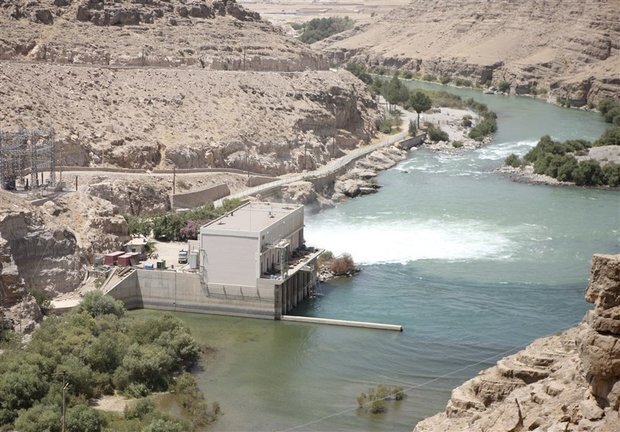Afghanistan does not buy into Helmand water right: DOE chief

TEHRAN – Department of Environment Chief Ali Salagheqeh has said Afghan officials do not accept the truth about Iran’s water right from the border Helmand River.
The Ministry of Energy has held meetings with Afghan officials, but has gained no positive results, ISNA quoted Salagheqeh as saying on Saturday.
Iran has asked Afghanistan to be committed to the 1973 Helmand River Water Treaty, according to which Iran should receive 820 million cubic meters of water from the Helmand River.
The Iranian deputy energy minister for water affairs Mohammad Javanbakht said in June that the Taliban-led government in Kabul should do more to implement the terms of the agreement.
Javanbakht said that Iran had received only 4 million cubic meters (mcm) from an annual water right of 820 mcm under the Helmand River Water Treaty since the start of the current water year in October, Press TV reported.
Iran has asked Afghanistan to be committed to the 1973 Helmand River Water Treaty, according to which Iran should receive 820 million cubic meters of water from the Helmand River.
On July 12, Tehran played host to a conference of ministers and officials from 11 countries, aiming to boost cooperation for resolving extant environmental problems, especially sand and dust storms.
Environment ministers of Iraq, Armenia, the United Arab Emirates, Oman, Syria, and Qatar, as well as deputy ministers of Azerbaijan and Turkmenistan along with delegations from Turkey and Uzbekistan, participated in the event which was held with the theme of “Environmental Cooperation for a Better Future.”
Water diplomacy on the agenda
On Thursday, Foreign Minister Hossein Amir Abdollahian pointed to the efforts of the diplomatic apparatus to solve the environmental crises, saying that unfortunately part of the environmental crises that the region is facing is due to the wars that have occurred in the region over the last two or three decades and these wars have negatively affected the environment.
“Regarding this issue, Iran is trying to create peace, stability, and sustainable security in the region and avoid war. The second part of it refers to the issue of water diplomacy and this is an issue that is on the agenda of the foreign ministry and the energy ministry,” he added.
Stating that a part of this issue also goes back to Helmand water, he clarified that he has talked about this issue three times in person and several times over the phone with Amir Khan Muttaqi, the acting Minister of Foreign Affairs of Afghanistan's interim governing body.
“The progress we have had is that the current officials of the Afghan governing body accept that Iran's water rights from Helmand should be secured, but they say from a technical point of view, Kabul is also facing problems with rain and so on,” he elaborated.
Regarding Iran’s water rights from Aras and the need of the western provinces, the foreign minister said that about eight months ago, he agreed with Turkish Foreign Minister Mevlut Cavusoglu to form a joint water committee for the first time.
“A delegation from Iran went to Turkey and soon a delegation from Turkey will come to Iran,” he added.
Similarly, Amir Abdollahian pointed to the recent conversation between the presidents of Iran and Turkey and said, “Dr. Raisi emphasized this issue twice in his recent meeting with Mr. Erdogan and said that this is not an issue that we can easily ignore and we expect you not to reduce Iran's water rights from the Aras River, and this is the right of the Iranian people and should be taken into consideration. We are also following this issue in different departments.”
FB/MG
